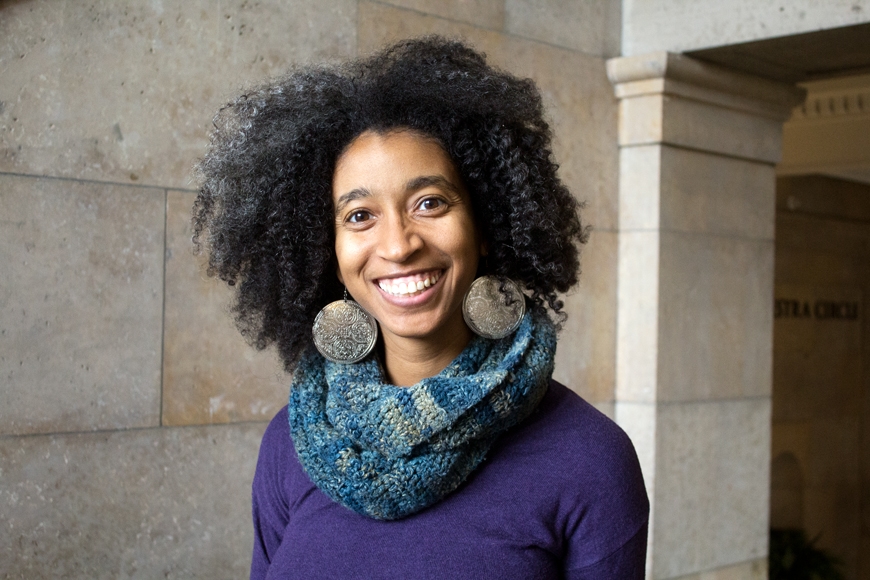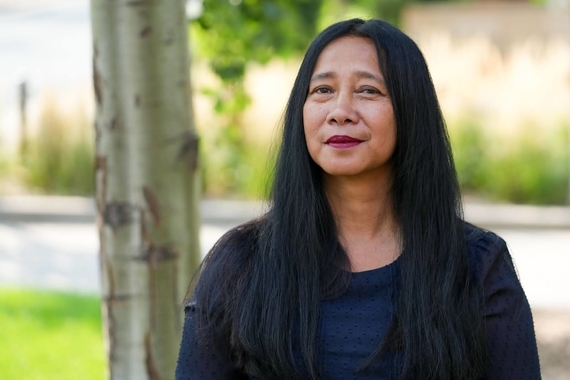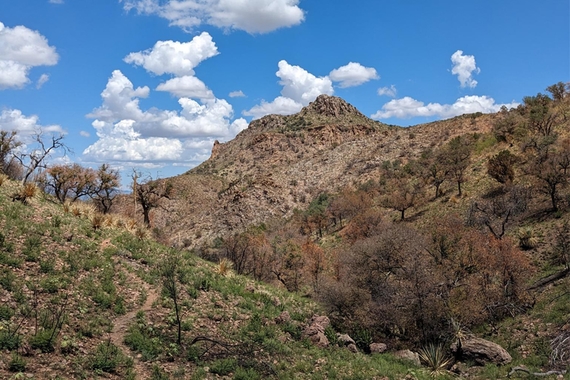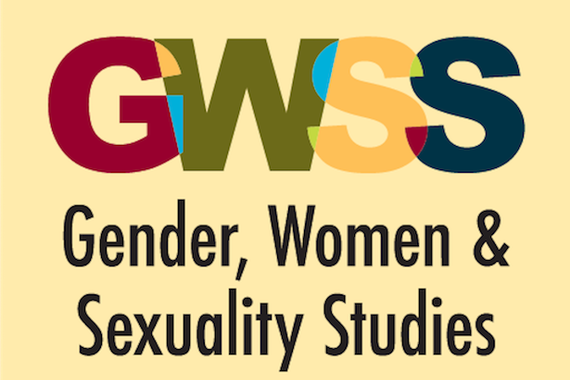Oracles of Black Feminism
“I work in multiple forms but what’s consistent across those forms is that I work in the form of oracle,” says Alexis Pauline Gumbs. “Oracles are a method people use to move from confusion to greater clarity on issues or questions they face in their life […] We all have the capacity to know beyond what we actually know, especially when we have each other.” She aims to create “performance oracles” that allow people “to use their intuition to choose a resource that may help them on their life’s journey.”
The Road to Winton Chair
Gumbs is the current Winton Chair in the College of Liberal Arts, a position that has brought outside scholars whose research or creative work “questions established patterns of thought” into the University community since 1987.
In 2016, North Carolina-based Gumbs came to Minneapolis to speak at a Winton Chair Cornerstone Event called “Learning to Breathe: Black Feminism, Performative Pedagogies & Creative Praxis,” where she delivered a talk on her Black feminist breathing oracle, a 21-day guided “meditation experience” that reflects upon the lives and wisdom of Black feminist historical figures. In 2017, when Gumbs was asked to become the next Winton Chair and her life partner, Sangodare (also known as Julia Roxanne Wallace), was invited to be a resident artist in the Department of Art, they enthusiastically began brainstorming ideas for engaging with the artists in the Twin Cities.
The Laurie Carlos Oracle
Gumbs’ first project of her two-year term was a collaboration with people who had known Laurie Carlos, an actress, director, playwright, and mentor to many in the Twin Cities, who was also known for serving meals to the casts of her plays.
The inspiration for this project came from an intense dream one night while staying at a friend’s house in Minneapolis before she became Winton Chair. Just before waking up from the dream, she heard the words, "It's okay. You can still bring people gifts after they die." The next morning Gumbs learned the house had been the last place Carlos lived before she passed away in 2016. Gumbs considers Carlos to be the “guardian angel of [her] entire Winton experience” because everything that made the Winton Chair possible for her, led back to Carlos.
The project was divided into three parts. In the first, Gumbs prepared meals for locals who had worked with Carlos. While she and her guest ate they discussed their experiences with Carlos and Gumbs learned about Carlos’ life. The second part of the project, called the Laurie Carlos Kitchen Table Reading, followed the same theme. Many of Gumbs’ previous guests came for a dinner together. They read Carlos’ play “Marion’s Terrible Time of Joy” line-by-line around the table, pausing to reflect upon how the verses they were reading helped them to understand their own experiences with Carlos. This became a way for Carlos to speak to them from the grave in the form of an oracle.
The final part was a public event for artists who had already been engaging with the Laurie Carlos Oracle and interested others. It allowed people to ask the oracle questions, with the idea that Laurie Carlos would be answering the questions through the circle of participants. The oracle participants would respond in one of Carlos’ methodologies (gesture, physical objects, stories, or songs).
Black Feminist Oracles
When Gumbs became the Winton Chair, Signe Harriday was someone who she had hoped to work with during her term. Harriday co-founded Mama Mosaic Theater and directed a striking performance called “The Blacker the Berry” that Gumbs saw at the Learning to Breathe event. She was also excited to collaborate with Erin Sharkey, co-founder of the local art project “Free Black Dirt.” Gumbs, Sharkey, and Harriday worked with a group of eight local women of color (who did not necessarily have theatrical experience) to interpret Gumbs’ book M Archive: After the End of the World for the stage. The book examines artifacts from our present world from the perspective of a future that has been rocked by calamity. It is organized into four elemental “archives” (sky, ocean, dirt, and fire) and each team of two artists took on an element, crafting performances aimed at engaging with the questions posed in the book. They gave a public performance in April 2018.
This semester, Gumbs is teaching first-year seminar called Spill: A Black Feminist Oracle. The students in this course live in Charlotte’s Home, a UMN Living and Learning Community (the UMN’s first all-Black women’s LLC). The course engages with Gumbs’ first book, Spill: Scenes of Black Feminist Fugitivity, and other texts that inspired her to write Spill. The students will work with Signe Harriday and Erin Sharkey, who was also a part of the M Archive performance, to create performances of their own personal histories, taking inspiration from pieces in Spill that remind them of their own lives. Their performance was on December 4 and was attended by the students’ off-campus communities.
Gumbs’ work has been transformative for the people who she has worked with, from the Laurie Carlos Oracle to her most recent project, Spill: A Black Feminist Oracle. The projects themselves have been influential to her and her work as an artist and a scholar. She is always reflecting on how her work affects the people she works with. The Spill Oracle Intensive has been the most impactful project for Gumbs to work on recently because she gets to engage with students who are at such a pivotal transition point in their lives. Gumbs wants her students “to really engage with this incredible community in this city. There is something every student can find in the Twin Cities.”
This story was written by an undergraduate student content creator in CLAgency. Meet the team.



